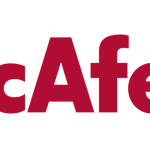- Branche: Software
- Number of terms: 9143
- Number of blossaries: 1
- Company Profile:
This software intercepts data between the user entering it and the intended recipient application. Trojan and PUP keyloggers may be functionally identical. McAfee software detects both types of keyloggers to prevent privacy intrusions.
Industry:Internet
A scan will examine files to find viruses and other potentially unwanted code.
Industry:Internet
An unintentional fault in a software program that can have unwanted side effects. Examples include various web browser security issues and software problems.
Industry:Internet
A type of denial-of-service (DoS) attack in which more than one traffic generator directs traffic to a targeted URL. Traffic-generating programs are called agents, and the controlling program is the master. DDoS agents receive instruction from a master to carry out an attack, which is designed to disable or shut down the targeted URL.
Industry:Internet
The standard measure of data speed or data transmission is bits per second (bps). It is calculated by how many bits of data are transmitted or received over a one-second period.
Industry:Internet
Any information that, by itself or when combined with other information, can identify an individual.
Industry:Internet
This standard reference system identifies viruses and other malware, and aims to reduce confusion caused when security vendors give different names or aliases for the same threat.
Industry:Internet
An executable file or program that launches a set of operations on a computer. Files with different extensions, like . Dll, are often support files for EXE programs. Viruses commonly infect EXE files. After such an infection, the virus runs each time the program runs.
Industry:Internet
Improper malware detection of a clean file. For example, heuristic and generic detection methods can protect users from threats that have not yet been discovered. However, these detection techniques can also lead to false detections.
Industry:Internet
Cookies are small text files placed on a computer’s hard disk that many websites use to store information about pages visited and other settings, either temporary or persistent. For example, cookies might contain login or registration information, shopping cart information, or user preferences. When a server receives a browser request that includes a cookie, the server can use the information stored in the cookie to customize the website for the user.
Industry:Internet
